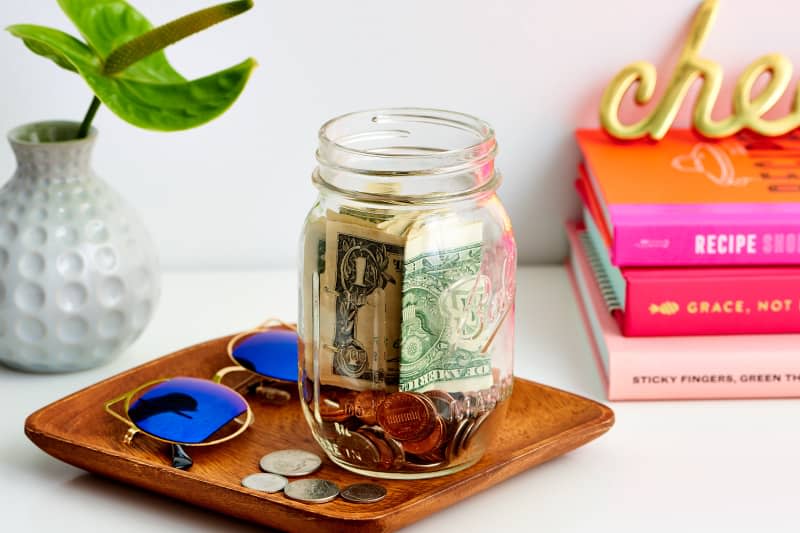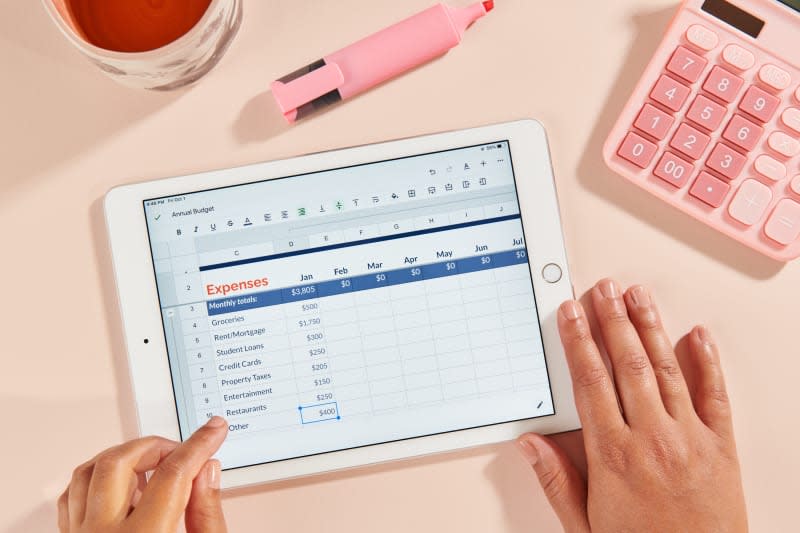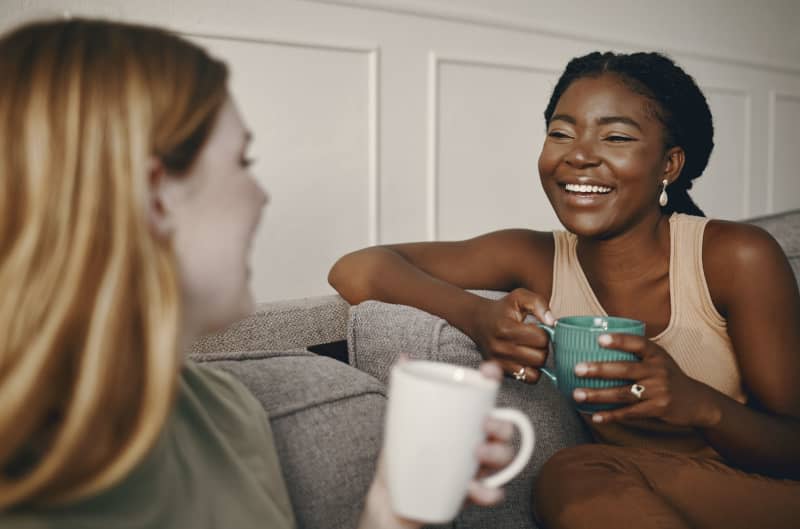"Loud Budgeting" Is My Money Resolution for 2024 — Here's Why

After years of half-completed resolutions (I maintain that I will be able to do the splits one day), I’m shifting my focus for 2024. In 2023 I felt like I was being swept along by a fast-moving current; this year, I want to be steering the boat. That’s why all of my resolutions center on being deliberate about how I spend my time and emotional energy and, importantly, my money. So I was beyond pleased to see this TikTok from content creator Lukas Battle declaring 2024 the year of loud budgeting.
As Battle explains, “loud budgeting” means clearly and unabashedly stating your financial goals and boundaries; for example, asking a friend to catch up over a bottle of wine at home and telling them it’s so you can both avoid spending $40 at a bar.
The money-conscious trend is the opposite of quiet luxury, the 2023 trend that glorifies “old money” aesthetics and reveres subtle displays of wealth (think: Kendall Roy’s Loro Piana caps). But loud budgeting doesn’t imply cheapness. Instead of a scarcity mindset, loud budgeting encourages discernment: Your money is valuable, and it’s not embarrassing to decide you’ll only spend it where you truly want or can afford to. And while quiet luxury focuses on spending money to give the appearance of wealth, loud budgeting encourages spending money to build wealth, as other creators have begun to point out.
It’s a welcome cultural shift from the conspicuous consumption that’s taken over social media feeds. (I love a good water tumbler, but does anyone need 40 pastel Stanley cups?) The cultural and economic system in the U.S. is structured to encourage overspending, from the endless and ever-churning trend cycle to abundant credit made more accessible than ever via buy now, pay later programs. But excessive consumption has wide-ranging consequences beyond emptying your savings account, particularly on the environment. In my opinion, everyone is long overdue to take a hard look at what they truly need versus what they’re being conditioned to want.

For me, loud budgeting is just another way to describe intentional spending (or not spending). I grew up in Silicon Valley in the late ’90s, surrounded by conspicuous consumption in all its forms, and I coveted everything from the endlessly cool inflatable armchairs, to the cultural cachet of a pristine velour Juicy tracksuit. Maybe this early exposure to wanting and not having the status symbols of my peers prepared me to view current trends with a critical eye. That’s not to say I’m immune to impulse purchases, but I’ve given away or sold so many over the years that I’ve learned to curb my spur-of-the-moment shopping. Moving from tiny apartment to tiny apartment in New York City ensures I’m regularly confronted by the frivolity of certain purchases and the sheer amount of stuff I already own. In other words, I’m generally comfortable setting certain boundaries for myself when it comes to spending and discerning what’s worth my money.
What’s been less comfortable for me is vocally expressing those boundaries to others. Too often, I agree to go out for an expensive dinner or drinks when I know it’s really beyond my budget. It’s vulnerable to admit I can’t afford something — loud budgeting helps turn that dynamic on its head by framing it positively. Loud budgeting means asserting what I choose to spend, not apologizing for what I can’t afford. And the speed with which the trend is being picked up shows just how much, I think, many people have been wanting to be more open about the financial realities they’re dealing with.

It’s so rare to hear others express the need to save money, yet it’s always refreshing because it’s so relatable and entirely valid. And the emotional utility (see, I did retain something from Economics 101) I derive from catching up with a friend over a glass of wine at home is just the same as what I’d gain from a $23 negroni at a bar. The truth is, good friends ought to be understanding and supportive of financial goals, and there’s no reason to shortchange myself due to perceived social pressure.
The increasing popularity of de-influencers tells me that loud budgeting may be part of a broader and longer-lasting shift toward meaningful consumption, and I’m personally thrilled (and more than a little relieved). As 2024 continues, I can’t wait to talk more about how little I plan to spend.

